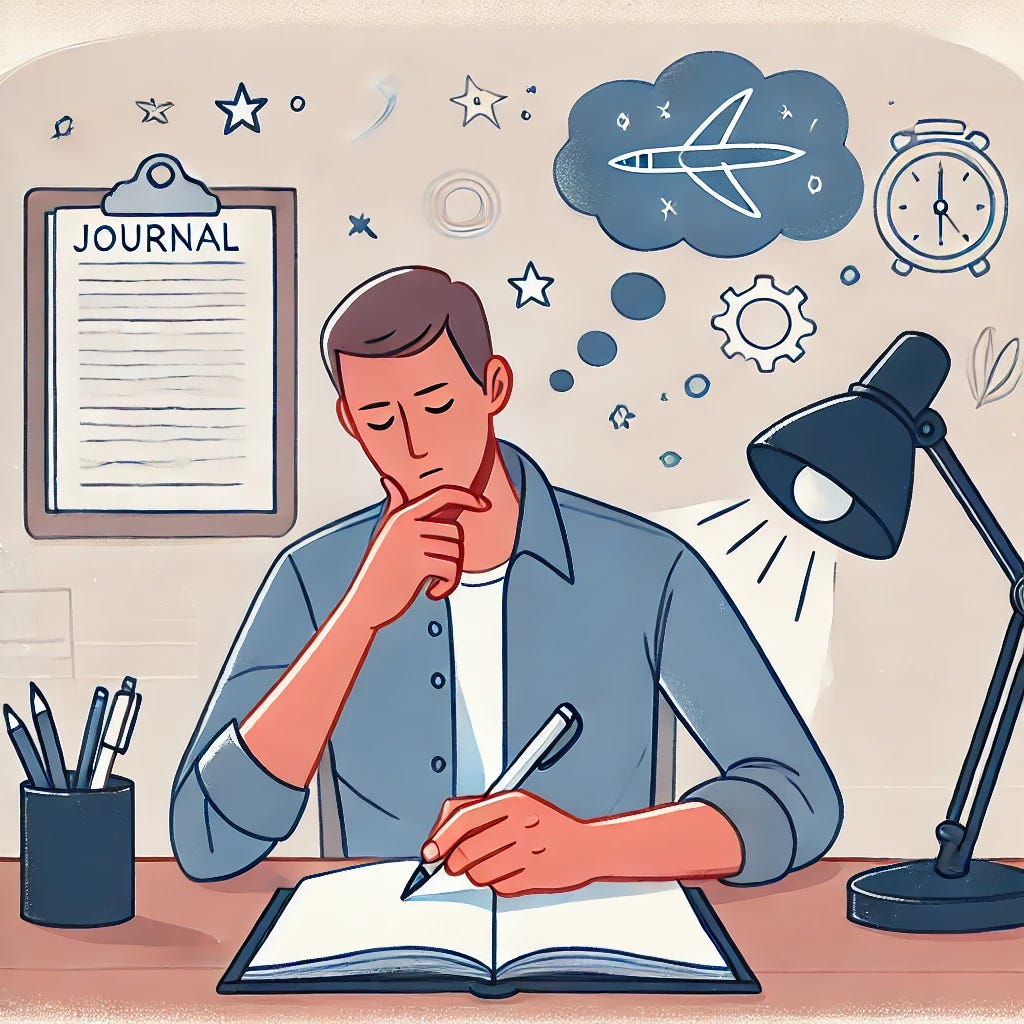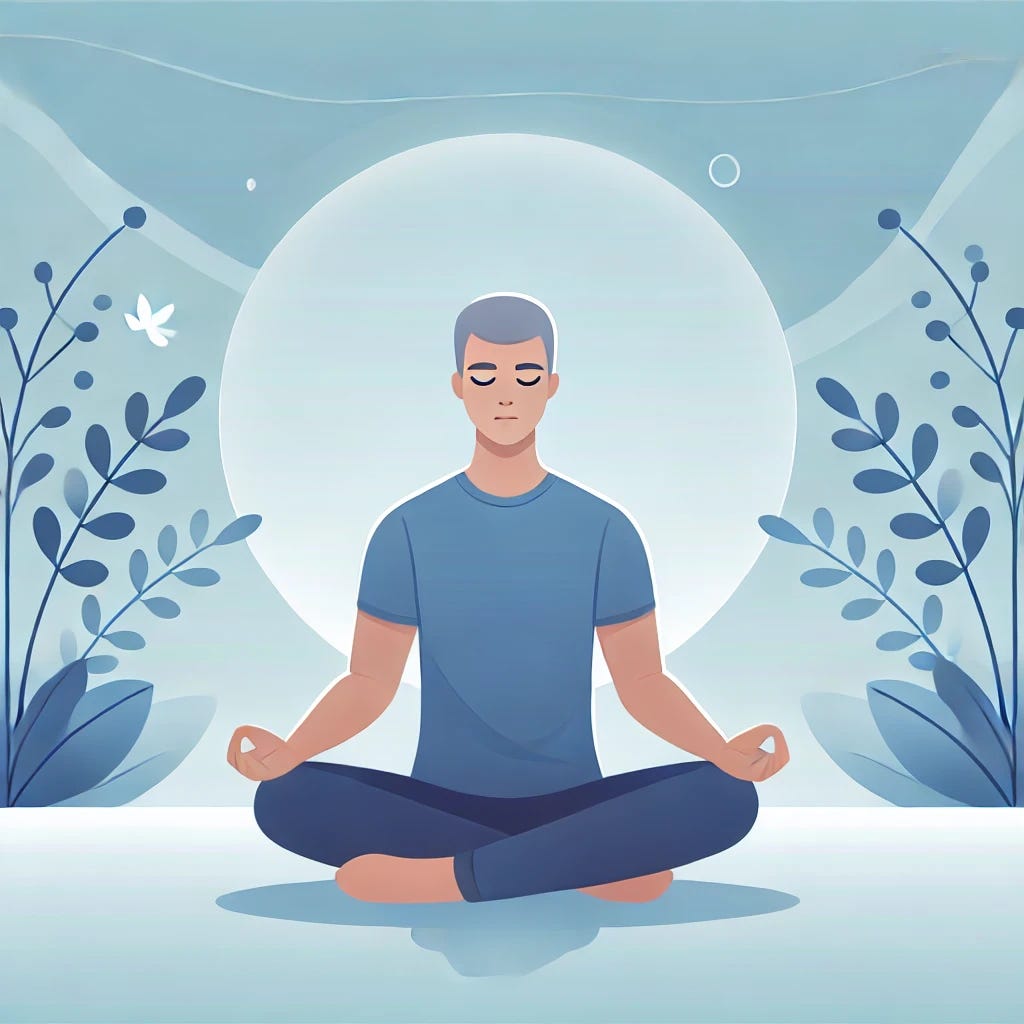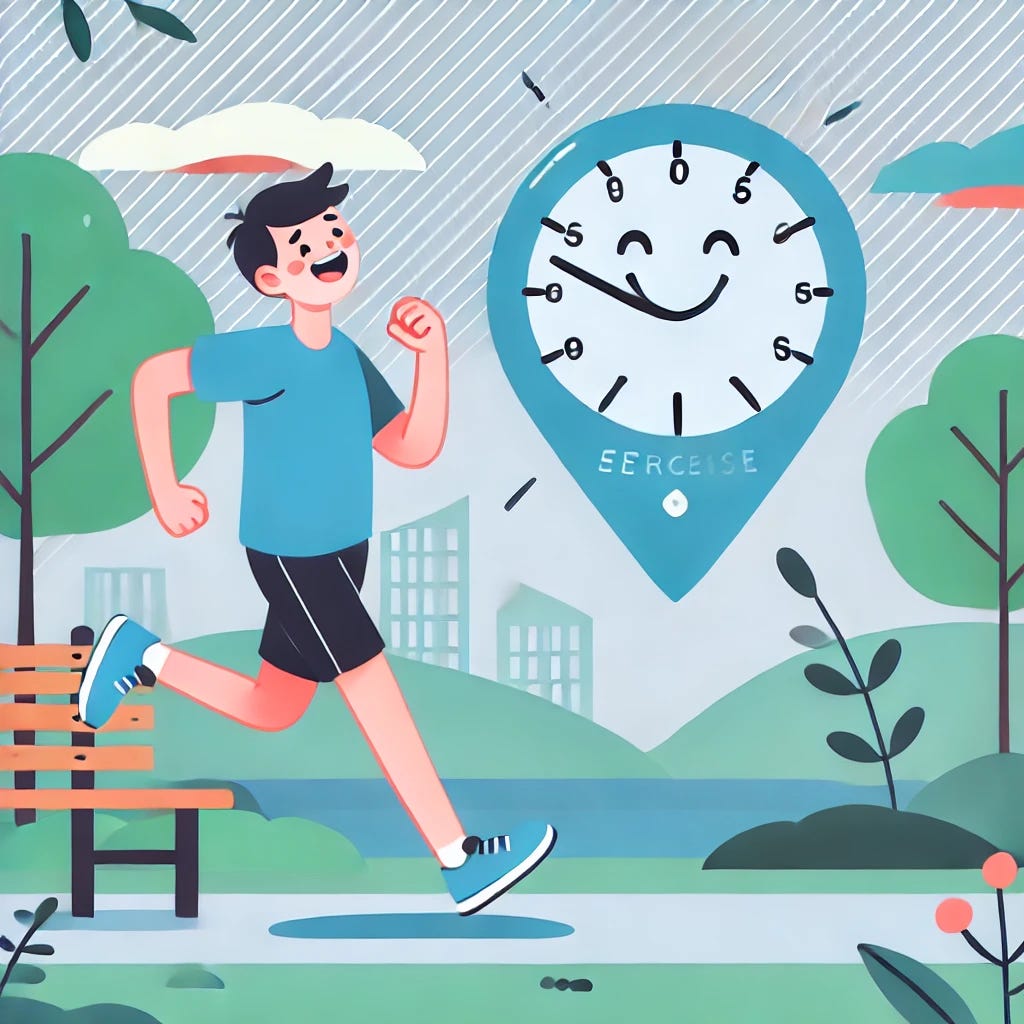Strategies for Hope
moving towards the light at the end of the tunnel
From within this fast-paced digital world, it's easy to become overwhelmed by negative emotions. Time and Attention are our most precious resources, being increasingly commandeered by external sources. We must not give away our agency and experience to low quality digitality.
This article presents a set of practical actions you can take to help you feel better instantly. By matching common emotional and physical states with simple, actionable habit prompts we’ll help reduce the length and regularity of unnecessary negative experiences.
Each section delves into each emotion matched to a recommended action. I’ll briefly explain why they work, how to incorporate them into habits of daily life, and provide sources. I take these actions to help me return my focus and corresponding experience towards positivity at any given moment.
Overthinking: Write
When the mind is cluttered with thoughts and worries, writing is your most powerful tool. Speaking, tapping, typing, writing, or drawing down your thoughts helps to organize the mind, making it easier to process, queue and reduce mental clutter. Research has shown that expressive writing can improve mental health by allowing individuals to process their experiences and gain clarity (Pennebaker & Chung, 2011).
You can program your phone to open directly to a page, carry a physical notebook, or record audio. The key is to recognize the feeling and to associate an action or hijack an existing action to automatically pour those high-pressure thoughts out of your nervous system and into your medium of choice.
Anxious: Meditate
Meditation is a well-documented practice for reducing anxiety. By focusing and maintaining focus on a single experience like the sensation of breathing through your nose, counting your heartbeats, tapping, or any other sensation you can maintain focus on in the present moment. You are practicing consciously directed mindfulness, you can calm your mind and reduce anxiety.
When you recognize this experience attach a micro mediation of 3 breaths. Think only about the slow and deliberate breath in and out to a count on your fingers. 1. 2. 3. Attaching this habit will extend your life by years, anxiety wears out the nervous system. You can keep the counting going as long as you need to.
Studies find that regular intentional meditation will decrease symptoms of anxiety and improve overall emotional well-being (Goyal et al., 2014).
Tired: Nap
A short nap can be incredibly rejuvenating, especially if you’re already feeling tired. Napping helps to improve alertness, enhance performance, and reduce fatigue. A brief nap of 10-20 minutes is often recommended to avoid sleep inertia and maximize the benefits (Mednick & Ehrman, 2006). There are some meditative practices which can be used to compress the time it takes to fall asleep. Anywhere you can safely relax your muscles from head to toe can be a napping space.
Sad: Exercise
Physical activity is a proven mood booster. Exercise releases endorphins, which are natural mood elevators. Regular physical activity as simple as a 5-minute walk will help alleviate symptoms of depression and improve overall emotional health (Blumenthal et al., 1999).
Even a short burst of exercise, such as 10 push-ups, lunges, jumping jacks, or pull ups can make the difference in uplifting an unpleasant mood. Recognize when you’re moping and make a habit out of moving intentionally despite friction. By doing this regularly, you’ll build up a pile of evidence that you’re the kind of person who perseveres!
Stressed: Go for a Walk
Taking a walk, particularly in nature, will significantly reduce stress levels. (season 47 of American politics seems to be driving everyone mad)
Walking activates our most primal physical outlet for stress and allows us to step away from whatever situations we’re in. Nature walks, in particular, have been shown to reduce cortisol levels and improve mood (Bratman et al., 2015).
While it’s hard to attach this to the feeling as in a habit, if you regularly visit nature, say once a week, you’ll not find you have less stress, but that you can deal with it more easily.
Angry: Listen to Music
Music has a profound effect on our emotions. Listening to music you enjoy can help reduce feelings of anger and promote relaxation. Different types of music can evoke different emotional responses, so choose music that facilitates your personal pathway towards a more calm and centered experience. (Koelsch et al., 2010).
Lazy: Reduce Screen Time
Excessive screen time contributes to feelings of lethargy, leading to laziness. Reducing screen time will help you feel more energized and motivated to engage with other more fulfilling activities. Taking regular breaks from screens and setting limits on your usage will improve your overall well-being (Przybylski & Weinstein, 2017).
If you can follow your infinite scroll with staring at a blank wall, you’ll discover how similar they are, and find the walk can actually be more interesting if you have avoided scrolling for a long enough period of time.
Burnt Out: Read
Reading is a great way to journey away from stress through a more self-stimulating pathway. Whether you’re reading fiction to escape reality or non-fiction to learn something new, reading can help reduce feelings of burnout and provide a much-needed mental break (Billington et al., 2013).
Conclusion
Utilizing these simple strategies to help regulate your emotions and improve your overall well-being isn’t easy but very rewarding. By understanding and addressing the specific needs of your mind-body, you can instantly feel better and maintain a healthier, more pleasant life.
References
Billington, J., Carroll, M., & Davis, P. (2013). A literature-based intervention for older people living with dementia. Perspectives in Public Health, 133(3), 165-173.
Blumenthal, J. A., Babyak, M. A., Moore, K. A., Craighead, W. E., Herman, S., Khatri, P., ... & Doraiswamy, P. M. (1999). Effects of exercise training on older patients with major depression. Archives of Internal Medicine, 159(19), 2349-2356.
Bratman, G. N., Hamilton, J. P., & Daily, G. C. (2015). The impacts of nature experience on human cognitive function and mental health. Annals of the New York Academy of Sciences, 1249(1), 118-136.
Goyal, M., Singh, S., Sibinga, E. M., Gould, N. F., Rowland-Seymour, A., Sharma, R., ... & Haythornthwaite, J. A. (2014). Meditation programs for psychological stress and well-being: a systematic review and meta-analysis. JAMA Internal Medicine, 174(3), 357-368.
Koelsch, S., Offermanns, K., & Franzke, P. (2010). Music in the treatment of affective disorders: An exploratory investigation of a new method for music-therapeutic research. Music Perception, 27(4), 307-316.
Mednick, S., & Ehrman, M. E. (2006). Take a Nap! Change Your Life. Workman Publishing.
Pennebaker, J. W., & Chung, C. K. (2011). Expressive writing: Connections to physical and mental health. In H. S. Friedman (Ed.), The Oxford Handbook of Health Psychology (pp. 417-437). Oxford University Press.
Przybylski, A. K., & Weinstein, N. (2017). A large-scale test of the Goldilocks hypothesis: Quantifying the relations between digital-screen use and the mental well-being of adolescents. Psychological Science, 28(2), 204-215.
By applying these tips, you can effectively manage your emotional states and enhance your quality of life.











Well written, not necessarily new ideas but concisely expressed in a graphic direct style accessible to many people. I’m keeping it🙂